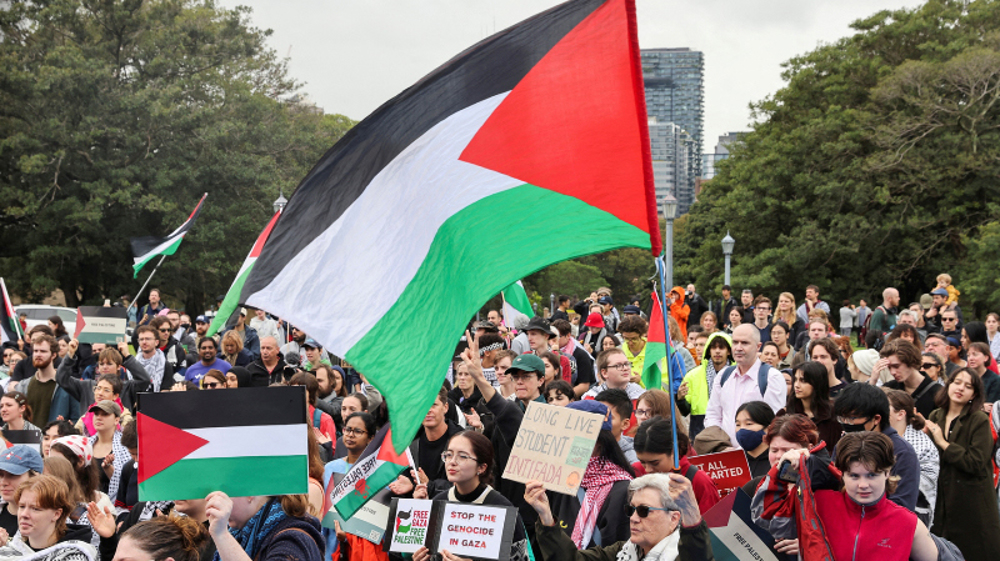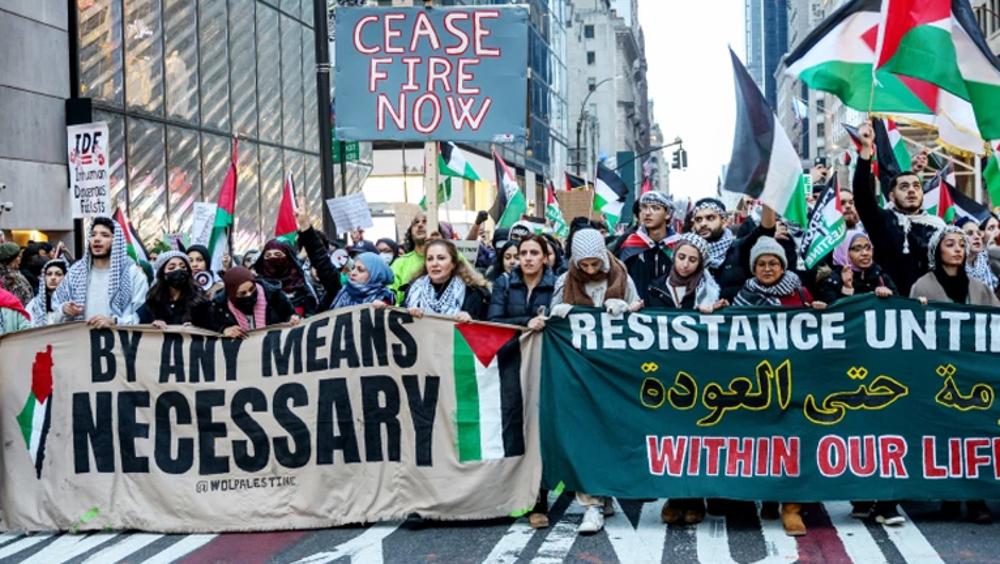No letup in protests to force expulsion of French envoy from Pakistan
Javed Rana
Press TV, Islamabad
There is no letup to the protests to compel Pakistani government to expel French ambassador from the country. At the heart of current wave of angry protests, is government’s decision to shelve its five months old agreement with Tehreek Labaik Pakistan or TLP, a religious and political party to expel the French ambassador to Islamabad. The repeated incidents of publications of blasphemous cartoons of Islam's Prophet Muhammad and official patronage by France to unending incidents of blasphemy once again triggered a mass unrest in Pakistan starting early this week.
The security forces came down hard onto protesters and managed to clear most of the highways they had occupied across Pakistan few days ago.
Paris has advised all of its citizens to immediately leave Pakistan over security concerns to their lives.
Pakistan also targeted major platform on social media networks, temporarily suspending them to contain the violence.
The religious group claims that over two dozens of its supporters were killed by security forces while hundreds of other were injured and arrested.
The government says nearly 600 of its policemen were injured and four of them were killed in the clashes.
Pakistan has described the current violence as an act terrorism and banned the TLP.
Pakistan’s all major political parties have history of attacking security forces and key state owned buildings, some of them at far greater scale than that of TLP.
The frequent incidents of blasphemy in the West has led to make TLP one of the leading popular political force in Pakistan. It is well entrenched and enjoys street power. On one occasion last year the group attracted millions of people in the eastern city of Lahore. Analysts believe that the government’s decision to ban TLP is most likely to be backfired given the fact that the party has extensively exploited the most sensitive public issue linked to the honour of the Prophet Mohammad.
'Next to impossible' to rescue patients from Gaza's Kamal Adwan Hospital: Director
VIDEO | Vietnam current prosperity
Report blames gasoil exports for shortage at Iranian power plants
VIDEO | Hind Rajab Foundation names Israeli war criminals vacationing after Gaza genocide
VIDEO | Australians rally for Gaza ahead of Christmas festivities
VIDEO | Attacks on Sana'a
Iran reports further drop in annual inflation rate in December
Israel indicts two settlers over suspected spying for Hezbollah









 This makes it easy to access the Press TV website
This makes it easy to access the Press TV website